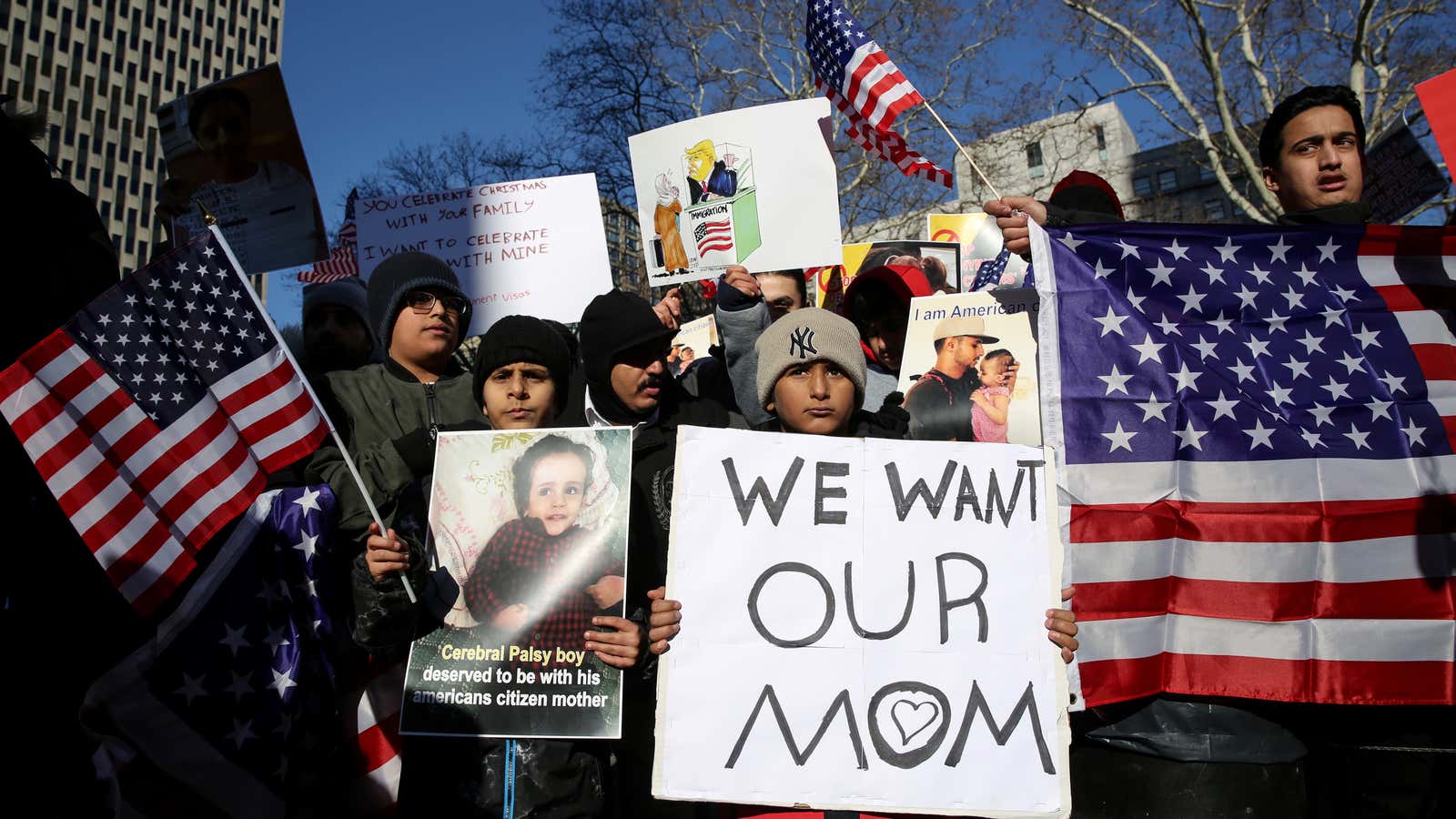Donald Trump’s controversial “travel ban” excludes about 150 million people from entering the US. If it’s affirmed by the US Supreme Court in an upcoming case, it could also have far-reaching consequences for many more.
The high court will hear oral arguments today (April 25) on the case, formally known as Donald J. Trump, President of the United States v. State of Hawaii. At issue specifically is the third iteration of the travel ban, ordered by the president last September after lower courts barred implementation of prior versions. The latest presidential proclamation restricts travel to the US for citizens from seven predominantly Muslim countries: Libya, Iran, Somalia, Syria, Yemen, North Korea, and Venezuela. (Chad was removed from the list this month.)
Hawaii’s district court issued a preliminary injunction in October (paywall) barring the ban’s enforcement, finding that the order violates the Immigration and Nationality Act. The Ninth Circuit Court of Appeals affirmed the Hawaii court’s ruling in December, but the Supreme Court, at the president’s request, allowed the ban to take effect while legal challenges continued. The high court in January agreed to review the case.
There are now two major issues before the court. Here are the primary questions the Supreme Court will consider:
- Whether the president’s proclamations exceed his broad authority over immigration. The US government argues, essentially, that states can’t tell the president what to do when it comes to US immigration—which is executive territory under the US Constitution and according to statute—and therefore can’t challenge the ban. Hawaii and the challengers argue that the president has gone beyond the powers allotted to the executive branch by creating broad and general categories of restricted entrants, in violation of the law.
- Whether the ban violates the Constitution’s establishment clause. The First Amendment of the Constitution bars the government from discriminating on the basis of religion. Because Trump’s travel ban targets citizens from nations that are mostly Muslim, challengers argue that it’s discriminatory—not, as the president claims, designed to protect national security. The US government points to the inclusion of two non-Muslim nations on its list in its defense. But the ban’s challengers counter that, while Venezuela and North Korea are included in the travel ban, the five other countries on the list indicate Trump’s true discriminatory intentions.
The high court will also consider two other questions presented by the president. First, whether the case is justiciable—in other words, whether courts are authorized to consider this matter at all. Second, whether Hawaii’s chosen remedy—a nationwide injunction on implementation of the travel ban—was too far-reaching.
Critics of the ban argue that if the Supreme Court affirms the executive order, it will set a dangerous legal and political precedent, threaten national security, and undermine fundamental American values. The travel ban, “in addition to being unjust,” has “actually made us less safe,” former National Security Agency and CIA director General Michael Hayden said in an interview with NPR on April 24. ”We assimilate immigrants, we know how to do it, and here is a proclamation that just seems to fly in the face of the essence of American-ness.”
Americans and international onlookers are watching the case closely, and will no doubt be waiting eagerly for the hearing recording’s release. But don’t hold your breath for a decision. As Amy Howe at SCOTUS Blog points out, the justices will probably provide clues as to their concerns at oral arguments, but are unlikely to issue an opinion until June.
